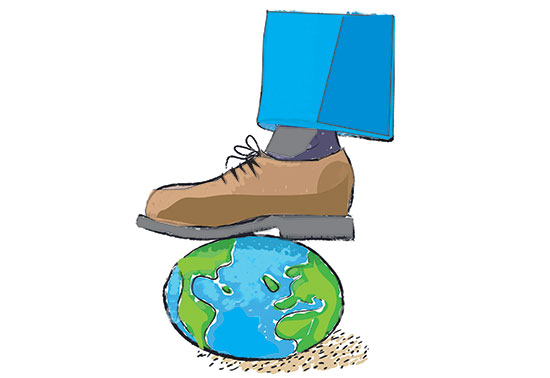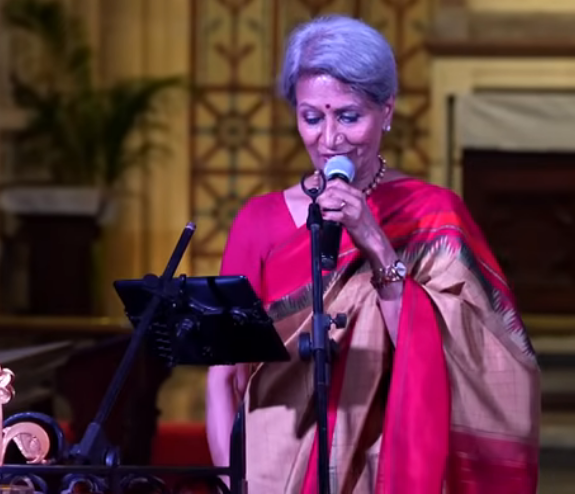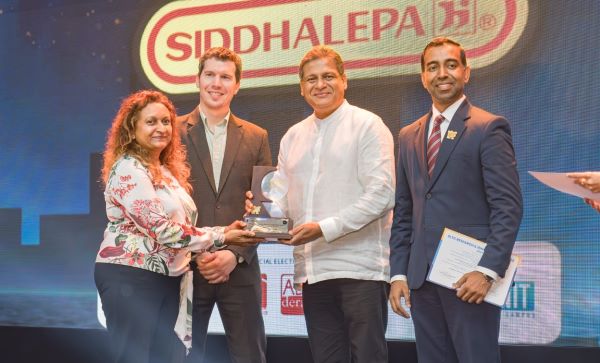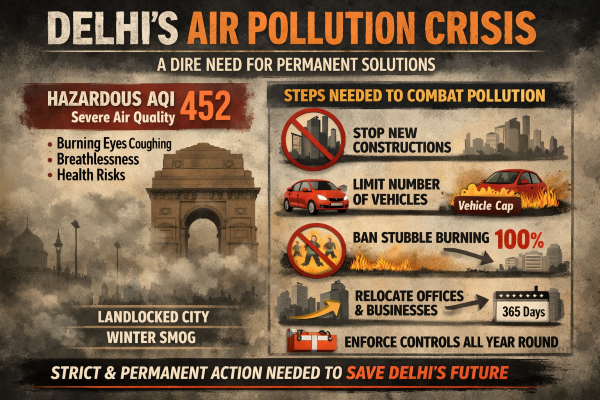Protect health of environment, animals, humans to prevent future pandemics

Source:Island
Former Senior Scientist
Central Pollution Control Board, India
The COVID-19 pandemic has demonstrated that the veneer of civilization is very thin. we did not have knowledge, resources and technologies to deal with such a devastating pandemic. More than 3.1 million people worldwide have died from Covid-19 and more than 146 million cases have been recorded till date. This pandemic is a crisis not today, this is only the beginning. The other viruses of animal origin are just around the corner. A future pandemic could be worse than the ongoing crisis because we are pushing nature to its limit by destroying and degrading amazingly diverse ecosystems, like tropical forests, rivers, lakes, mountains, coral reefs and many more and ultimately removing natural buffers and expanding the interface, the touch points, between wildlife and people where pandemics emerge.
This unsustainable exploitation of the environment due to human induced land-use change, intensive agriculture and animal-based food systems, growing trade in and farming of wildlife species and their consumption leads to instabilities in ecosystems and host microorganism dynamics. Increased intimate contact between wildlife, livestock, and people, potentially leads to emerging many zoonotic diseases either directly or indirectly. These problems are not restricted to any single species and the viability of even highly resilient natural populations of animals are now at risk.
A majority of emerging viruses come from wildlife but we cannot blame wild creatures, because behaviours of human to fulfill their greed by destroying the natural resources at a dizzying pace invite these viruses into our living room. Among all the human activities, deforestation is likely the single biggest source of new zoonotic diseases. As forests become increasingly fragmented, the chance of humans and their livestock coming into contact with wildlife and contract viruses increases. Nipah virus first spread in Indonesia when forests were burned for agriculture. Fruit bats fled to orchards, passing the disease to pigs and pig farmers. It is widely assumed that a pathogen in a bat jumped to another animal to a human in China and then hopped onto the “globalization express”, causing extraordinary suffering and trillions of dollars in damage. This happened after several decades of other pandemics— with bats or civets in the case of Ebola and SARS-CoV-1 and most likely chimps in the case of H.I.V.
Arrogance and luxurious lifestyle compel us to assume that humans are superior to the rest of living beings on earth and there is no need to maintain relationship with the wild. In this context I just want to mention that forests, freshwater systems, oceans, grasslands and the biodiversity within us literally give us the clean air, clean water, climate-stabilizing buffers and healthy food, as well as natural protection from viruses. Despite realizing this truth, we could not motivate us to stop exploitation in the name of so-called development.
Though upon occurrence of this pandemic, huge money is being spend towards treatment of Covid-19 patients and development of vaccine, governments and politicians, irrespective of any political affiliation, did not give any emphasis to stop this unsustainable exploitation. Otherwise, how multinational companies continuously undertake large-scale logging or mining in the world’s remaining great forests and construct hydropower projects on river? These MNCs need to pay for the pandemic risks associated with these extractive activities. In such a hypothetical scenario, perhaps some of these projects would not be undertaken at all. In this context it is pertinent to mention that halting these practices is the only sustainable vaccine against the next pandemic. This COVID-19 crisis is also clear that the cost of the boldest initiative to prevent future pandemics of this magnitude is less than the price we pay once a pandemic occurs, as opined by the researchers.
By 2050 or so, the human population is expected to cross nine billion mark. Those billions will be seeking food, water and other resources on a planet where humans are already shaping climate and the web of life. Now the question is what collective actions are needed to prevent this pandemic and at the same time to meet the population’s dietary needs? Now we have to explore the most important change that needs to be made by addressing 21st Century education challenges in a One Health manner.
The starting point of “one health” is to recognize that the health and well-being of humans, animals and the environment are intricately linked. The experts from a range of sectors, notably human health, animal health, plant health and the environment, work together in building a response infrastructure that emphasizes the sharing of information and the coordination of actions across multiple sectors. The “One Health” approach resembles other public health initiatives that attempt to break down disciplinary or sectoral silos, such as whole-of-government or health-in-all-policies approaches, or more recent calls for prioritizing eco-health or planetary health. It differs, however, by focusing on how competing interests such as agricultural productivity, farm livelihoods, animal health and the health of populations far removed from the farm must be balanced over a long period. This poses difficult governance and implementation challenges as the spectre of imminent health catastrophe is seldom present at the pre-epidemic stage when action is most crucial.
To strengthen its integrative approach to One Health, one of the important tasks is to collect data Systematically on the occurrence of infectious diseases, and related behaviours, in both humans and animals, can eventually contribute to developing models to estimate the probability of the emergence of a new zoonotic agent. Such systematic monitoring also facilitates the tracking of the spread of infection while providing early warning to human and animal health officials for response measures.
Next is the challenge of coordination and active collaboration required between various agencies for a unified, timely response. This is not only required at the local level but also for global response efforts to minimize the likelihood of pandemic potential.
Another challenging action is to better understand the differing regulatory environments that govern the live animal markets as a crucial first step in assessing the role of local or national-level institutions in minimizing zoonotic disease risk. In addition to above, health equity concerns are to be integrated for framing the policy for improvement of protection of vulnerable populations in current and future infectious disease outbreaks, both through attention to the socio-historical conditions and recognition of the knowledge and capabilities to prevent or mitigate the health harms arising from such outbreaks.
Though the One Health approach is considered crucial to address governance challenges of zoonotic diseases but its implementation in practice remains quite limited. It is time for international law to catch up with global reality. But global health scholars can neither simply focus on the health sector nor limit their work to scientific and technological improvement. All will have to realize is that food, trade, human rights, humanitarian relief, and the environment are critically important in improving health and reducing health inequalities.




















